Heavy fighting in northeastern Syria as civilians flee Turkish attacks
Turkish warplanes and artillery hit northeast Syria on the third day of an incursion that has forced tens of thousands to flee.
Heavy fighting was reported on Friday amid reports that Syrian Kurds had regained control of two of the 11 villages lost earlier.
"There is heavy fighting between the Syrian Democratic Forces (SDF) and the Turks on different fronts, mostly from Tal Abyad to Ras al-Ain," the so-called Syria Observatory for Human Rights said.
The Observatory said SDF Kurdish militants were using "tunnels, trenches and berms" in their defense operations while Turkish forces relied on airstrikes, heavy artillery and rocket fire.
Since the beginning of the Turkish invasion on Wednesday, at least 10 civilians along with least 29 Kurdish militants have been killed, according to the Observatory. Another six fighters belonging to armed groups led by Turkey have also been reported killed.
The Turkish Defense Ministry confirmed on Friday that it had lost one soldier and that another three had been injured, marking Turkey's first confirmed casualties since it began the incursion.
The US granted Turkey the greenlight to launch the incursion into northeast Syria earlier this week by withdrawing its troops from Syria’s Kurdish-controlled border region.
The move was seen by Kurdish forces as a "stab in the back" from their supposed ally in Washington.
Ankara seeks to create a "safe zone" stretching about 120 kilometers south of the Turkish border and 30 kilometers deep into the Kurdish-controlled region in northern Syria.
Humanitarian crisis
The United Nation's Office for the Coordination of Humanitarian Affairs announced on Thursday that an estimated 70,000 people have been displaced since Ankara launched the incursion.
Civilians were reported to be fleeing the affected areas by vehicle and on foot, carrying their belongings on their backs.
Fourteen humanitarian organizations, including Doctors of the World, Oxfam and the Norwegian Refugee Council, issued a statement warning of the potential humanitarian costs of the conflict.
"An estimated 450,000 people live within five kilometers of the Syria-Turkey border and are at risk if all sides do not exercise maximum restraint and prioritize the protection of civilians," the joint statement said.
Kurdish fighters have warned that the Turkish incursion may enable detainees belonging to the Daesh terrorist group to escape. About 12,000 men linked to Daesh are held in seven detention centers across northeast Syria, according to the Kurds.
On Thursday, Kurdish authorities said a prison housing terrorist fighters was hit by Turkish bombardment.
EU plans sanctions on Turkey
French State Secretary for European Affairs Amelie de Montchalin said Friday sanctions against Turkey will "be on the table" during the European Union's summit next week.
"We will not remain powerless when faced with a situation that is shocking for civilians, the free Syrian forces and the stability of the region," she said.
The incursion has drawn strong condemnation from the Syrian government which denounced it as an infringement on its national sovereignty.
Regional states such as Iran, Iraq, Lebanon, Egypt, Bahrain, the United Arab Emirates and Saudi Arabia as well the Europeans have voiced their opposition to the Turkish move.
In a statement on Thursday, the Iranian Foreign Ministry called for "the immediate cessation of attacks and the withdrawal of Turkish troops from Syria."
Speaking a day earlier, Iranian President Hassan Rouhani said Tehran acknowledged Ankara's "legitimate" security concerns, but only "the presence of the Syrian military" and withdrawal of US forces from the region could address those concerns.
Netanyahu vows to assist Kurdish militants
On Thursday, Israeli Prime Minister Benjamin Netanyahu waded into the crisis, pledging to assist Kurdish militants. "Israel is prepared to extend humanitarian assistance to the gallant Kurdish people," he said.
Tel Aviv and Washington have long been key supporters of Kurdish militants, with Israel trying to empower separatist elements in a bid to weaken regional governments.
Earlier this year, the Arabic-language al-Akhbar newspaper reported that Israeli officers have made regular visits to the Kurdish-controlled region in northern Syria.
The report, which echoed a similar report regarding the Iraqi Kurdistan, added that Kurdish authorities were selling oil to the Israeli regime.
VIDEO | Australians rally for Gaza ahead of Christmas festivities
VIDEO | Attacks on Sana'a
Iran reports further drop in annual inflation rate in December
Israel indicts two settlers over suspected spying for Hezbollah
Iran: US airstrikes on Yemen war crimes, violation of international law
Yemeni armed forces down F-18 fighter jet, repel US-UK attack: Spokesman
Iran warns against US-Israeli plot to weaken Muslims, dominate region
VIDEO | Public uproar in US against Israeli regime


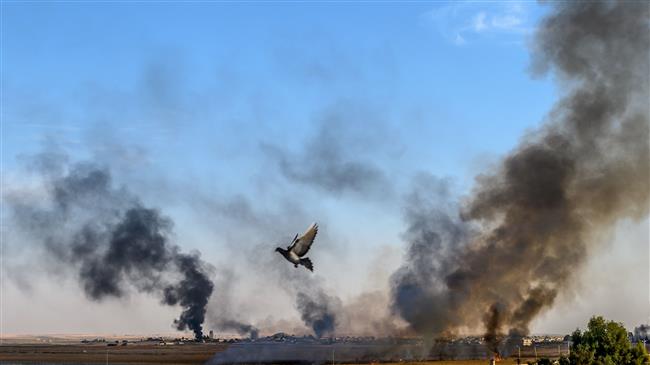




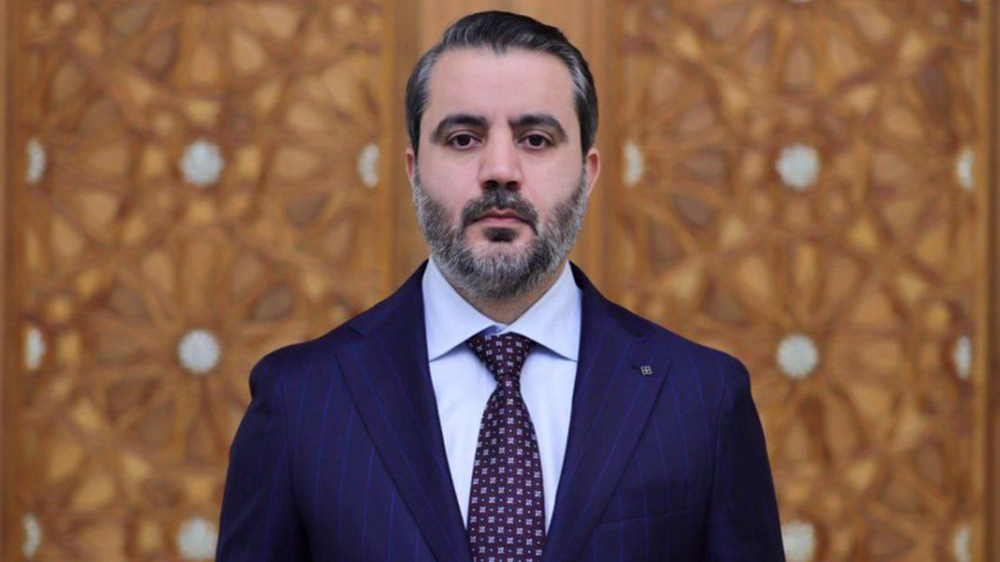

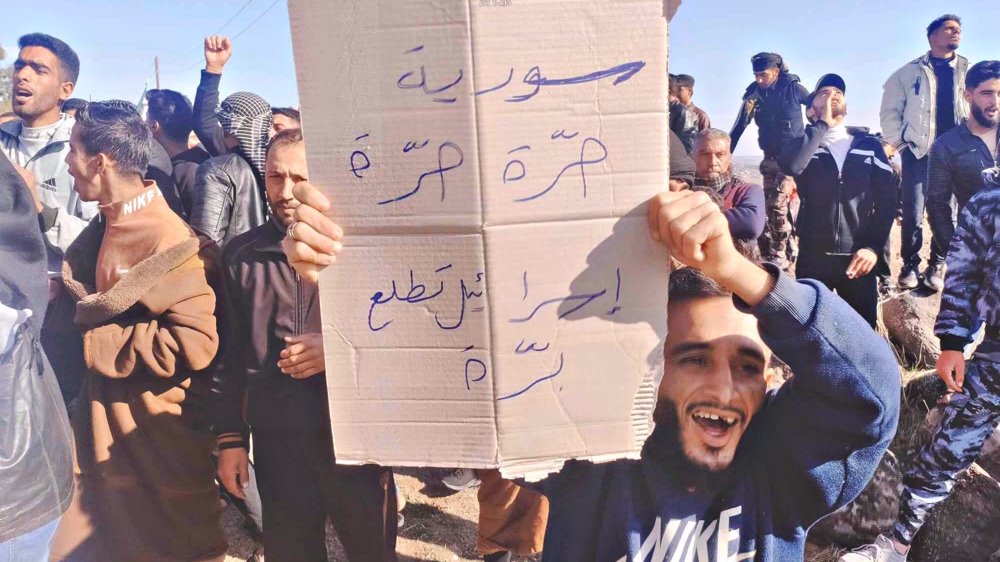



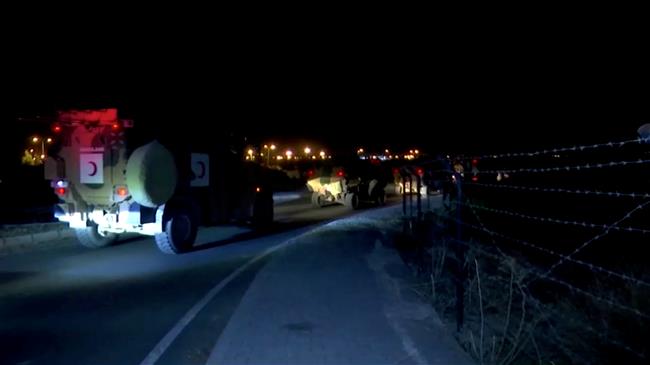
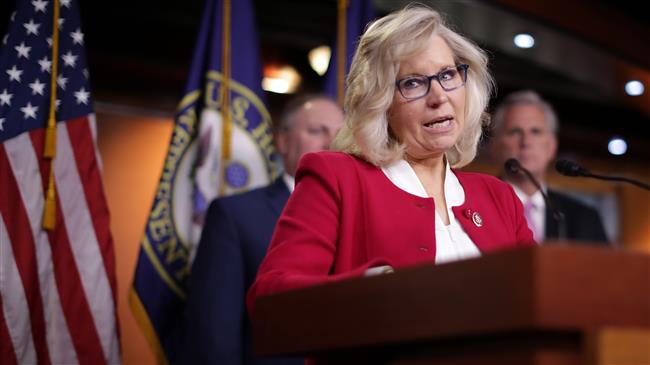
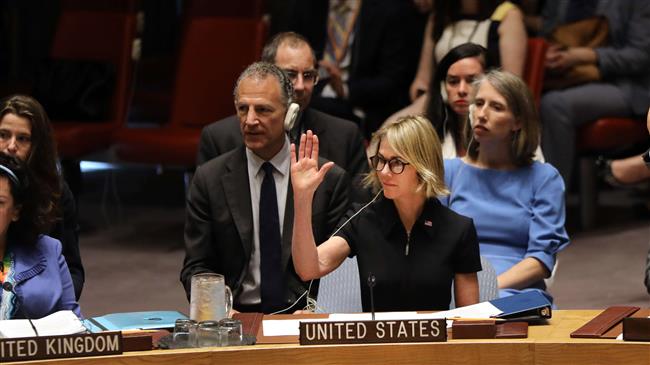
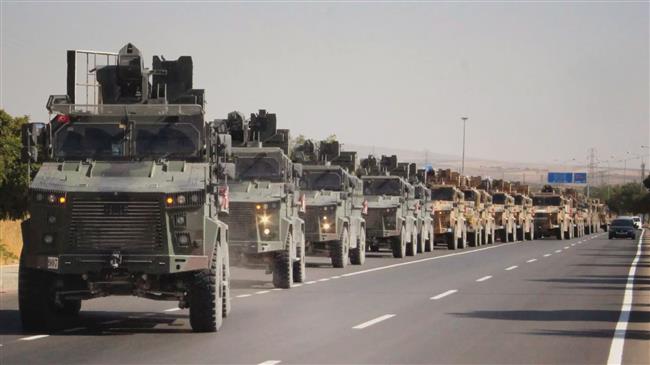
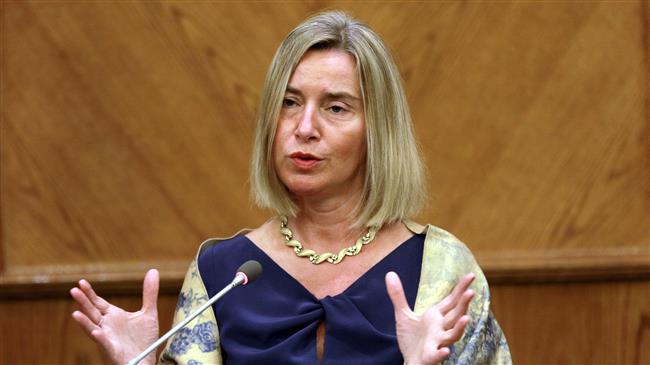

 This makes it easy to access the Press TV website
This makes it easy to access the Press TV website